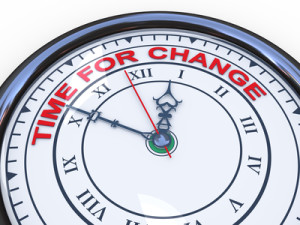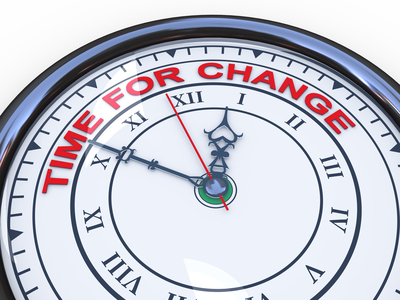
The Pew Research Center recently released its new Religious Landscape study and it seems to have stimulated differing opinions on the status of Christianity in America. CNN reported that Millennials are leaving the church in droves. Ryan Bell, the former Seventh Day Adventist minister who took a year off (and counting) from belief in God, titled his article: “American Christians Scramble for Silver Lining in Pew Religion Poll.” But evangelicals like Joe Carter of the Gospel Coalition and Ed Stetzer, a contributing editor for Christianity Today had a different take on the Pew Religious Landscape study.
Daniel Burke, the CNN Religion Editor highlighted the finding that the percentage of the Americans saying they were Christian dropped from 78.4% in 2007 to 70.4% in 2014. This was attributed by the Pew Research Center to the fact that more millennials are saying they are not affiliated with any faith. Thirty-six percent of younger millennials (18-24) identified as unaffiliated as 34% of older millennials (25-33). Twenty-three percent of Gen Xers (34-49), 17% of Baby Boomers (50-68) and 11% of the Silent Generation (69-86) were reportedly unaffiliated.
Burke pointed to how almost every major branch of Christianity lost a significant number of members. Greg Smith, from Pew Research, was quoted as saying: “We’ve known that the religiously unaffiliated has been growing for decades . . . But the pace at which they’ve continued to grow is really astounding.” The declines were deepest among Catholics and mainline Protestants. Burke’s conclusion was that the older generations were not as effective in passing along their faith as their forebears were.
Ryan Bell simply concluded: “Americans are losing their religion.” He noted the surprising increase among nones (religiously unaffiliated) to 22.8% of the population. He cautioned that atheists who celebrated these results as a victory were being too enthusiastic. Of the 22.8%, 4.0% said they were agnostic (a 1.6% increase since 2007), 3.1% said they were atheist (a 1.5% increase since 2007) and 15.8% said they were “nothing in particulars” (a 3.7% increase since 2007).
Several analyses of the Pew study have focused on the dramatic increase in the “unaffiliated” or “religious nones.” But look at what Pew Research means by “nones.” They are generally less religiously observant, but all nones are not nonbelievers. “In fact, many people who are unaffiliated with a religion believe in God, pray at least occasionally and think of themselves as spiritual people.” A better statement would seem to be that “Americans are losing their religious affiliation.” But this doesn’t appear to be happening with evangelicals. The Pew Research Center said:
The new survey indicates that churches in the evangelical Protestant tradition—including the Southern Baptist Convention, the Assemblies of God, Churches of Christ, the Lutheran Church Missouri Synod, the Presbyterian Church in America, other evangelical denominations and many nondenominational congregations—now have a total of about 62 million adult adherents. That is an increase of roughly 2 million since 2007, though once the margins of error are taken into account, it is possible that the number of evangelicals may have risen by as many as 5 million or remained essentially unchanged.
Bell didn’t seem to think much of the fact that there was only a minor decrease (-.9%) in the percentage of individuals saying they were evangelical, from 26.3% in 2007 to 25.4% in 2014. He pointed to how 35% of childhood evangelicals left their faith as adults. But Bell neglected to say that 41% of evangelicals were converts from other faith groups. This meant evangelicals were the only Christian faith group that gained, rather than lost members as their children grew to adulthood. However, he was correct to say that most of the Catholics or mainline Protestants leaving their faith group are becoming unaffiliated and not evangelicals. Among adults with no religious affiliation, 28% are former Catholics and 21% are former mainline Protestants.
The unaffiliated religious group was the most fluid over time, with only 21% of individuals currently identifying as such being raised within that tradition, while 90% of Catholics were raised as Catholics. Mainline Protestants and evangelicals were in-between with 42% and 39% respectively having been raised in religious groups other than their current identification.
Joe Carter concentrated his response on what he saw as the important “takeaways” related to evangelicalism. He said claims that conservative forms of evangelicalism are rapidly declining because of pernicious sexism, religious intolerance and conservative politics don’t seem to be true. He wondered whether this new information would be enough to lead critics of evangelicalism to alter their conclusions. Among the important takeaways he pointed to were a few we’ve already touched on, namely: evangelical Protestants have increased slightly or remained essentially unchanged while mainline Protestants declined significantly. He also noted that 65% of adults raised as evangelicals still identify as evangelicals. But there were a couple of additional interesting facts about evangelicals to look at as well.
One of these was how racial and ethnic minorities now make up 24% of evangelicals. This was an increase of 5% since 2007, with most of that increase (4%) coming from Hispanics. Another finding is that more Americans who self-identify as gay, lesbian or bisexual say they are evangelical (13%) than mainline (11%), atheist (8%), or agnostic (9%). Only Catholics had more individuals (17%) who self-indentified as gay, lesbian or bisexual. Among non-Christians, the four primary faith groups had very few individuals who self-identified as gay, lesbian or bisexual: Jewish (2%), Muslim (1%), Buddhist (2%), Hindu (1%).
As a quick aside, among individuals who self-identified as gay, lesbian or bisexual, 41% said they were religiously unaffiliated—8% said they were atheist; 9% were agnostic; and 24% were nothing in particular.
Ed Stezer has written several articles about the Pew Research Center data, for Christianity Today and other media outlets, including USA Today, CNN and The Washington Post. The link here for “Nominals to Nones” gives you access his other articles. Stezer made a distinction between three categories of Christians: cultural, congregational and convictional. He said the first two were nominal Christians who said they were Christian, but did not attend church services regularly or shape their lives around their faith convictions, as convictional Christians did. Cultural Christians were the least connected, calling themselves “Christian” because of heritage or culture. Congregational Christians had a connection to a local church, but rarely attended.
He said we see cultural and some congregational Christians now identifying themselves as “unaffiliated” or “nones.” Stezer supported this conclusion with a quote by Conrad Hackett, from Pew Research, “People with low levels of religious commitment are now more likely to indentify as religiously unaffiliated, whereas in earlier decades such people would have indentified as Christian, Jewish or as part of some other religious group.” In his CNN article, he looked at data from the General Social Survey (GSS) that suggested what we are seeing the death of is cultural and congregational Christians.
So, the big story is this: convictional Christians are remaining relatively steady with a slight decline. The nominals (cultural and congregational Christians) are often becoming the nones; and the sky is just not falling (unless you are a mainline Protestant).
His 3 key takeaways from the Pew Religious Landscape Survey were: convictional Christianity is rather steady; there have been significant shifts in American Christianity; and mainline Protestantism continues to hemorrhage. He said Christianity isn’t dying, but it is evolving. It’s becoming less nominal, more defined and more outside mainstream American culture. So we don’t need to run around saying, “The sky is falling!”
Christianity is losing, and will continue to lose, its home field advantage; no one can (or should) deny this. However, the numerical decline of self-identified American Christianity is more of a purifying bloodletting than it is an arrow to the heart of the church.





